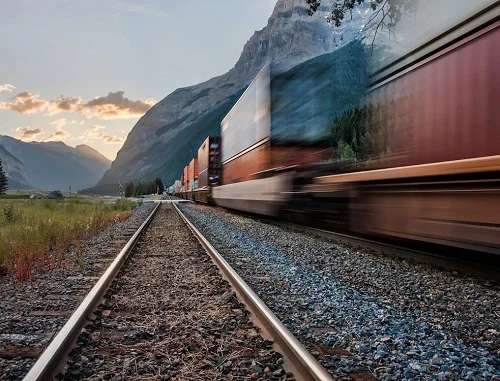Índice
Rail transport is crucial for global mobility, requiring professionals to manage its various components. Railway engineering is responsible for the design, construction, and operation of these transportation systems.
A railway engineer performs functions that ensure efficiency, sustainability, and, importantly, railway safety. If you want to learn more about this profession, we encourage you to keep reading.

Railway engineering is a multifaceted and technical field focused on the design, construction, planning, operation, and maintenance of railway systems. It involves tasks related to building infrastructure, including tracks, tunnels, signaling systems, and more.
Additionally, a railway engineer must perform tasks that ensure long-term functionality, sustainability, and safety. Achieving this requires knowledge across various engineering disciplines. The specific functions carried out in railway systems engineering include:
To complete this function, it is necessary to conceive and develop railway tracks, including track design. This design must be capable of supporting both the weight and the forces produced by trains, ensuring that journeys are safe and smooth.
In the design of railway systems or infrastructure, it includes not only tracks but also tunnels, stations, and bridges. Everything must focus on operational functionality and structural stability.
These systems are essential for ensuring that transportation operations are safe and efficient. Therefore, railway engineers must also develop and implement control and signaling systems, which include both traditional methods and the latest advanced technologies.
The maintenance function focuses on rolling stock, as well as electronic and electrical systems. It must be performed both preventively and correctively until vehicles need to be updated to accommodate emerging technologies over time.
In the case of maintaining electronic and electrical systems, this includes the electrification systems of the tracks and more. In addition to caring for these systems, engineers in this field must also plan and design them.
Many consider railway engineering to be a part of civil engineering because it employs many techniques and principles from civil engineering. This is particularly evident in the design and construction of bridges, tunnels, railway tracks, and other types of rail infrastructure.
Another way in which civil engineering relates to railway engineering is through the planning of train control systems and their infrastructure. Civil engineers also handle these aspects in their respective fields. Therefore, we can consider railway engineering to be a specialization within civil engineering.
Railway engineering includes several specialties or disciplines, each essential for achieving the goals of the profession. The following are the disciplines and what they encompass in the railway sector:
Ensuring the success and sustainability of the railway transport system involves significant challenges. These include operational and technical difficulties that require adaptive and innovative solutions. Let’s explore these challenges:
In railway engineering, there is also a growing need to reduce the environmental impact of the field. Professionals are actively seeking ways to decrease the carbon footprint generated by the construction and operation of railway systems.
One of the solutions being implemented is the use of clean technologies in construction, employing sustainable materials, and adopting eco-friendly practices. Additionally, renewable energy sources are being utilized to make this type of transport cleaner.
This challenge arises from the need to balance the operational demand for trains with the available infrastructure. To address this, strategies for management and scheduling are developed to optimize the use of railway resources.
To fulfill the functions of railway engineering, various professionals are required. These include specialists in railway underground infrastructure, track and railway engineers, railway safety engineers, and railway operations managers.
What we have analyzed shows that while it is true that the engineering we are discussing contributes to global mobility, it is more than that. Through the innovative ways engineers are overcoming the challenges of the profession, it has been demonstrated that this field is driving a more efficient and sustainable future in transportation.

¡Muchas gracias!
Hemos recibido correctamente tus datos. En breve nos pondremos en contacto contigo.